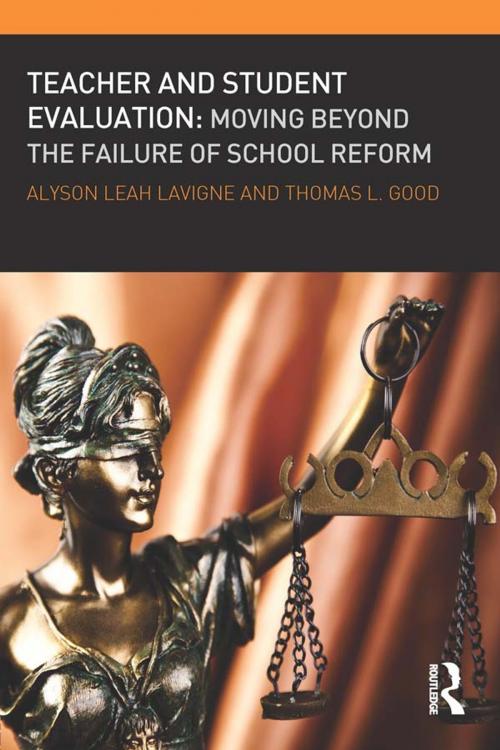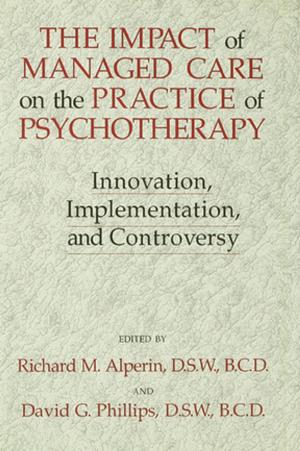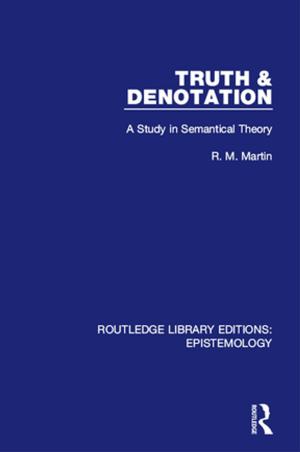Teacher and Student Evaluation
Moving Beyond the Failure of School Reform
Nonfiction, Reference & Language, Education & Teaching, Educational Theory, Testing & Measurement, Educational Reform| Author: | Alyson Leah Lavigne, Thomas L. Good | ISBN: | 9781135093259 |
| Publisher: | Taylor and Francis | Publication: | September 5, 2013 |
| Imprint: | Routledge | Language: | English |
| Author: | Alyson Leah Lavigne, Thomas L. Good |
| ISBN: | 9781135093259 |
| Publisher: | Taylor and Francis |
| Publication: | September 5, 2013 |
| Imprint: | Routledge |
| Language: | English |
Following the recent major school reform of Race to the Top, schools, teachers, and students are increasingly evaluated through high-stakes achievement test scores. In six concise chapters, Teacher and Student Evaluation explores the historical rise and modern landscape of accountability in American education, and the current models of teacher evaluation. The authors provide realistic and useful suggestions for responding to current accountability demands.
The authors explore the methodological concerns and policy implications of using value-added and observational measures to make high-stakes decisions. After reaching the conclusion that these contemporary evaluation practices are flawed, Alyson Lavigne and Thomas Good offer possible solutions that inform current and future teacher evaluation. This book is a valuable resource for students of educational assessment as well as policy makers, administrators, and teachers who are currently building accountability plans. The book is written in an accessible but authoritative fashion that practitioners, policymakers, and scholars will find useful.
Following the recent major school reform of Race to the Top, schools, teachers, and students are increasingly evaluated through high-stakes achievement test scores. In six concise chapters, Teacher and Student Evaluation explores the historical rise and modern landscape of accountability in American education, and the current models of teacher evaluation. The authors provide realistic and useful suggestions for responding to current accountability demands.
The authors explore the methodological concerns and policy implications of using value-added and observational measures to make high-stakes decisions. After reaching the conclusion that these contemporary evaluation practices are flawed, Alyson Lavigne and Thomas Good offer possible solutions that inform current and future teacher evaluation. This book is a valuable resource for students of educational assessment as well as policy makers, administrators, and teachers who are currently building accountability plans. The book is written in an accessible but authoritative fashion that practitioners, policymakers, and scholars will find useful.















